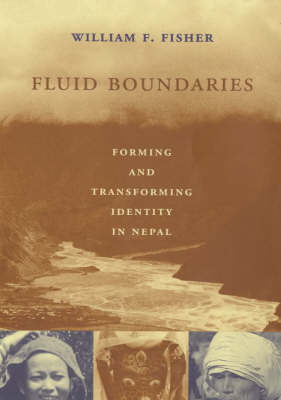
Fluid Boundaries
Forming and Transforming Identity in Nepal
Seiten
2001
Columbia University Press (Verlag)
978-0-231-11087-7 (ISBN)
Columbia University Press (Verlag)
978-0-231-11087-7 (ISBN)
Examining the relationship between societal practice, historical processes, and culture in a Nepali society, this book tells the story of the Thakali's search for identity and their efforts to clarify and represent their culture and history.
More than an ethnography, this book clarifies one of the most important current debates in anthropology: How should anthropologists regard culture, history, and the power process? Since the 1980s, the Thakali of Nepal have searched for an identity and a clarification of their "true" culture and history in the wake of their rise to political power and achievement of economic success. Although united in this search, the Thakali are divided as to the answers that have been proposed: the "Hinduization" of religious practices, the promotion of Tibetan Buddhism, the revival of practices associated with the Thakali shamans, and secularization. Ironically, the attempts by the Thakali to define their identity reveal that to return to tradition they must first re-create it-but this process of re-creation establishes it in a way in which it has never existed. To return to "tradition"-to become Thakali again-is, in a way, to become Thakali for the very first time.
More than an ethnography, this book clarifies one of the most important current debates in anthropology: How should anthropologists regard culture, history, and the power process? Since the 1980s, the Thakali of Nepal have searched for an identity and a clarification of their "true" culture and history in the wake of their rise to political power and achievement of economic success. Although united in this search, the Thakali are divided as to the answers that have been proposed: the "Hinduization" of religious practices, the promotion of Tibetan Buddhism, the revival of practices associated with the Thakali shamans, and secularization. Ironically, the attempts by the Thakali to define their identity reveal that to return to tradition they must first re-create it-but this process of re-creation establishes it in a way in which it has never existed. To return to "tradition"-to become Thakali again-is, in a way, to become Thakali for the very first time.
William F. Fisher is associate professor of anthropology at Harvard University.
List of Maps and Tables Preface Acknowledgments 1. Introduction: Thakali Again for the Very First Time 2. Drawing Lines: On Constructing and Contesting Boundaries 3. Forging Histories 4. Separation and Integration: Community and Contestation 5. Ritual Landscapes 6. Codifying Culture 7. Constructing Thakali 8. Beyond Sanskritization 9. Old Artificers in a New Smithy Notes Glossary Works Cited Index
| Erscheint lt. Verlag | 24.12.2001 |
|---|---|
| Verlagsort | New York |
| Sprache | englisch |
| Maße | 152 x 229 mm |
| Themenwelt | Geisteswissenschaften ► Archäologie |
| Sozialwissenschaften ► Ethnologie | |
| Sozialwissenschaften ► Soziologie | |
| ISBN-10 | 0-231-11087-1 / 0231110871 |
| ISBN-13 | 978-0-231-11087-7 / 9780231110877 |
| Zustand | Neuware |
| Haben Sie eine Frage zum Produkt? |
Mehr entdecken
aus dem Bereich
aus dem Bereich
Holocaust heritage, noncitizen futures, and black power in Berlin
Buch | Softcover (2022)
University of California Press (Verlag)
CHF 52,35
Development of shoe patterns and styles from Prehistory till the …
Buch | Softcover (2023)
Archetype Publications Ltd (Verlag)
CHF 124,80


